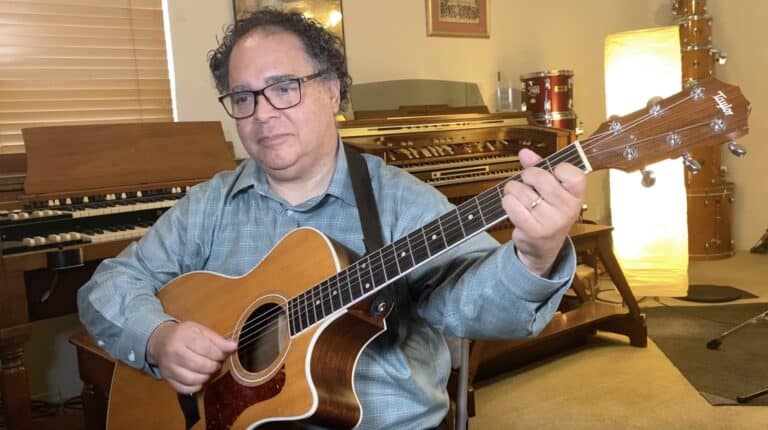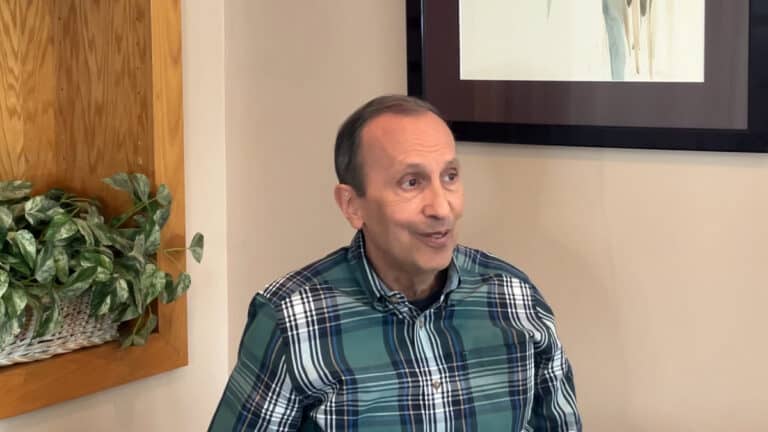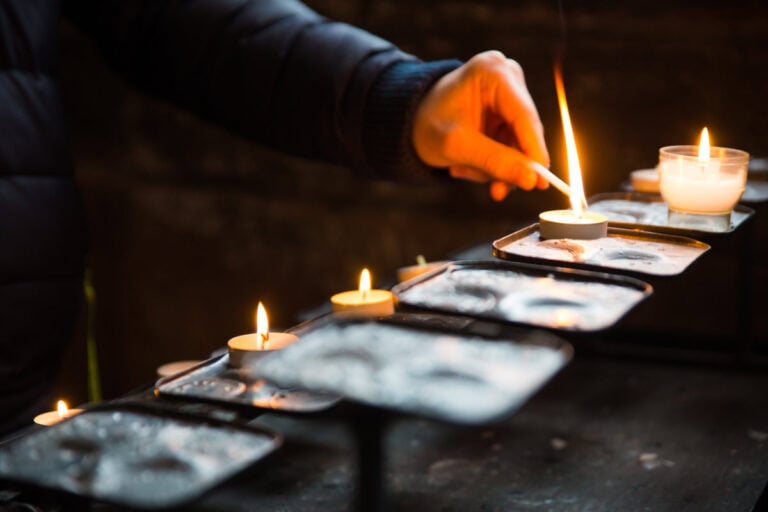“We believe in the resurrection of the body and the life of the world to come.”
The seasons begin to shift. The temperatures begin their descent. For some of us the green trees of summer have been transformed to brilliant reds and yellows and the falling leaves blanket lawns and walkways. Daylight grows less and the moon makes her appearance ever earlier each day. Autumn is upon us.
Our faith remains.
The rhythmic cycle of church life finds differing ways of celebrating the deep, constant truths that echo in our hearts. The ecstatic joy of our Easter celebrations and shared newness of life that Spring promised was months ago. But the beauty of faith is that it is not fleeting but rather sustains us throughout all the times of our lives.
The celebrations of the “Days of the Dead” — All Hallow’s Eve, Solemnity of All Saints, and the Commemoration of All the Faithful Departed on All Souls Day — allow us to renew and rejoice in the lives of our ancestors, their witness, and our promise of rising again.
All Souls Day (celebrated on November 2) is a very unique day in our calendar; standing alone and not falling into any other category. While not called a memorial or a solemnity, in the Table of Liturgical Days it is treated as a solemnity and outranks some other solemnities, like those of the patron saint of a parish.
The history of this commemoration finds its roots in early church history and grows from Christians’ concern about their loved ones. (See 1 Thessalonians 4) As our family and friends pass on, it is our faith that sustains us. One can find prayers for the dead from the early centuries. Credit is most often given to Abbot St. Oldilo of Cluny for establishing November 2 as the memorial of all the faithful departed around 988AD. Rome accepted this in the 13th century.
Liturgically, one oddity is that the readings (even on a Sunday) are not appointed and may be chosen from #668 in the lectionary, or any of the Masses for the Dead. The normal format is followed (Old Testament, Psalm, Epistle, Gospel). Practically, this is one of the rare times Catholics around the world do not hear the same scripture at mass.
In addition, there are three options for the Presidential Prayers for mass and an optional solemn blessing (#20). The Gloria is not sung. In 1915 Pope Benedict the XV gave priests permission to celebrate mass three times on this day. (Perhaps not so rare in our experience.) One mass would be for a particular intention, one for the intention of the pope, and one for all the faithful departed. While this may seem a bit archaic to some, with another light, this indicates the importance of the commemoration in the hearts and minds of the church.
Of course, honoring our ancestors flows from the liturgy into many practices imbued with cultural significance. Cleaning graves and decorating them with fall flowers is common. Some people take walks in cemeteries and pray for those buried there, especially those that have no one to pray for them. Some bring food and have a picnic at family graves, retelling stories and remembering.
Some create an “altar” or “enthronement” at home. We bring out pictures and mementos of our beloved ones. In England in the Middle Ages children or our poor would go door to door “souling,” that is begging for “soul cakes” in exchange for prayers or even entertainment. Soul cakes are a small spice cake, like a cookie or shortbread — find a recipe here. There is also a Soul Cake song that has been passed down as well. Some suggest this is one of the origins of Halloween “begging” door to door.
In whatever manner we honor the ancestors, whether in sadness, joy or struggle, we do so in hope and faith in our Lord’s promise of resurrection. As we pray at mass:
“Listen kindly to our prayer, O Lord,
and, as our faith in your Son,
raised from the dead is deepened,
so may our hope of resurrection for your departed servants
also find new strength.
Through our Lord Jesus Christ, your Son,
who lives and reigns with you in the unity of the Holy Spirit,
one God for ever and ever. Amen.”
Mary Dumm, D.Min, is a founding board member of CLEF and the pastoral associate at St. Blase Church in Sterling Heights, Michigan. Additionally, she teaches at Siena Heights University and SS. Cyril and Methodius Seminary.
Copyright © 2025 Catholic Liturgical Ensemble Formation
Looking for more resources? Search our full online library of CLEF Life resources, or sign up for CLEF Life email updates to receive the latest resource in your inbox once a week.



